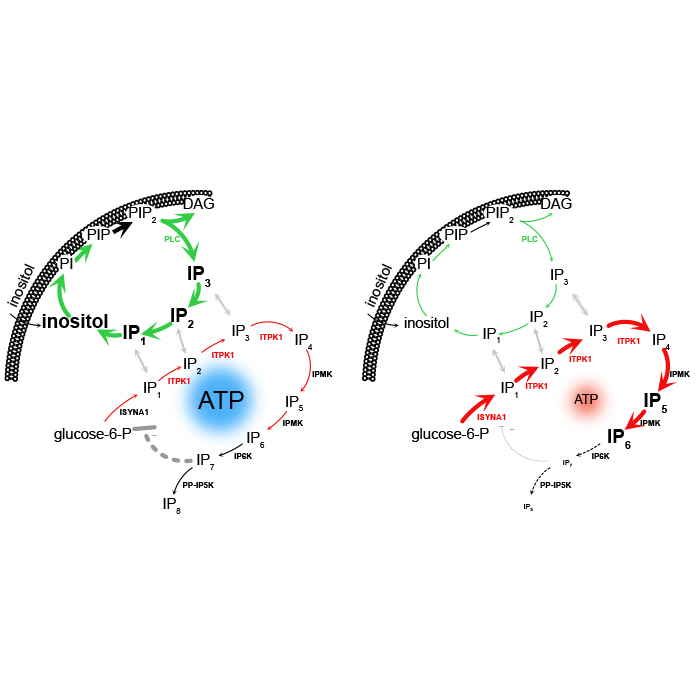New publication in PNAS for Saiardi Lab
Inositol phosphates are a class of small molecules involved in signalling and metabolism. The wide breadth of functions they are associated with, including cell migration, DNA repair, telomere length maintenance, insulin sensitivity, phosphate homeostasis, cell cycle regulation, and necroptosis, testifies to the importance of these molecules in biology. How they are produced is key to understanding how they regulate cellular processes. In their recent publication in PNAS, the Saiardi Lab characterizes a pathway for inositol phosphate synthesis that challenges the dogma, defined in the 1980s, of phospholipase C(PLC)-generated IP3 being the precursor for the whole family of inositol phosphates. They find that the highly conserved kinase ITPK1 converts inositol-1-phosphate to higher inositol phosphates. Its substrate can be generated by the conversion of glucose-6-phosphate into inositol-1-phosphate by an enzyme called ISYNA1, suggesting a direct link between basic metabolism and the synthesis of inositol phosphates. The data shed light on the evolutionary origin of IPs, signaling and tightening the link between these small molecules and basic metabolism.
 Close
Close


